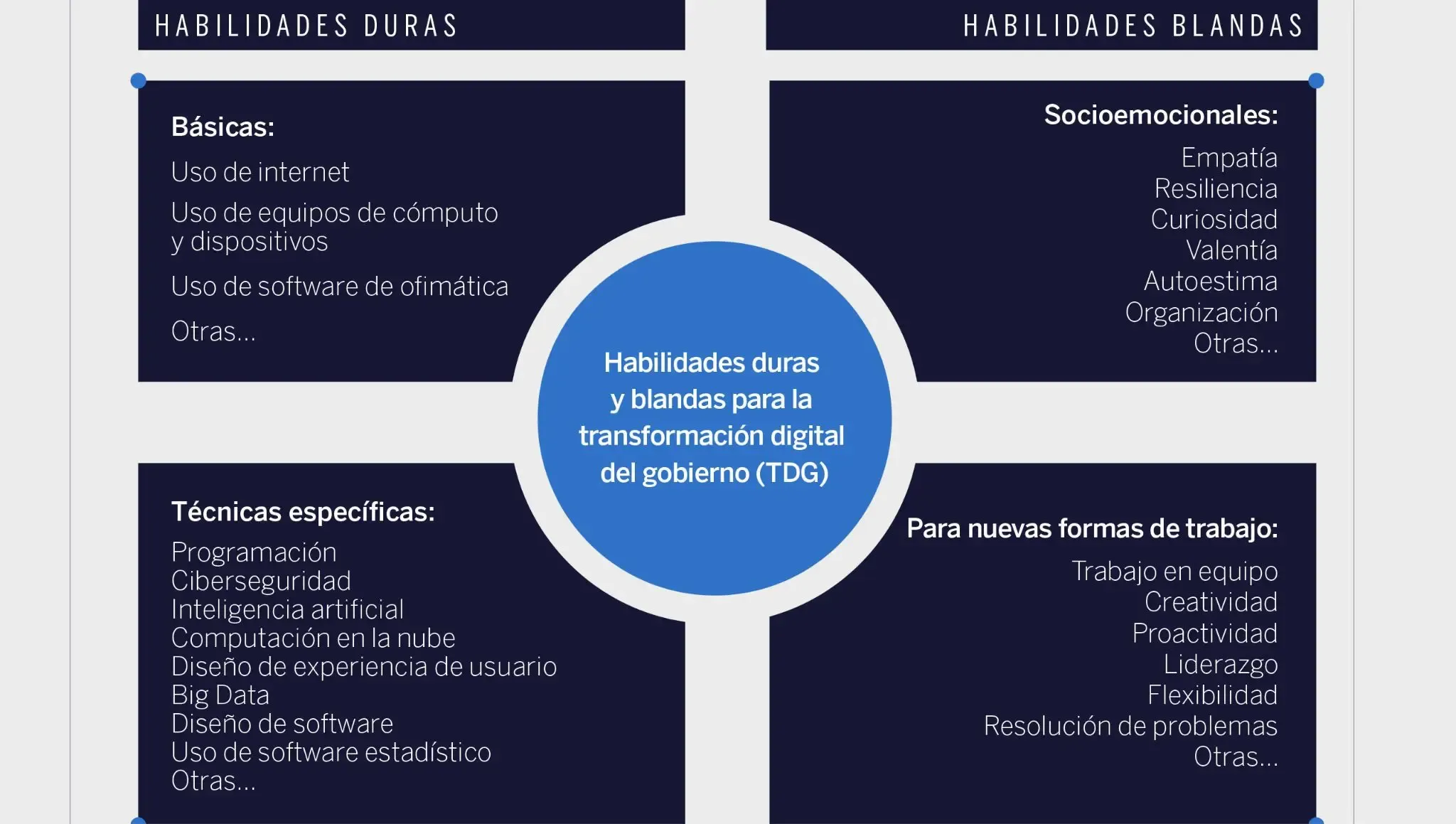Digital Governments: Transforming Public Administration for the Future
In an increasingly connected and technologically advanced world, digital governments have become essential. It's not just about using technology, but completely transforming how the government interacts with citizens and manages resources. Some key benefits include operational efficiency, government transparency, and improving service quality. However, there are also challenges, such as the digital divide and information security. In Mexico, the implementation of digital governments can revitalize trust and citizen participation.
WHY IS DIGITAL GOVERNMENT IMPORTANT?
In an increasingly connected and technologically advanced world, digital transformation has become an urgent necessity for governments around the globe. A digital government not only refers to the use of information technologies to carry out government functions but represents a complete reinvention of how the government interacts with citizens and manages resources and services. Digitalization promises to make public administration more efficient, transparent, and accessible to all citizens.
However, the interest and need for digital governments have gained particular momentum in recent times, especially in the wake of the COVID-19 pandemic. The global health crisis has highlighted the importance of having governmental systems that can operate effectively under any circumstances, ensuring that essential services continue to reach those who need them most without interruptions. Thus, digital government is not just an advanced technological option but a crucial part of national resilience strategy and continuous improvement of the population’s quality of life.
1. ROBUST TECHNOLOGICAL INFRASTRUCTURE:
-
Networks and Connectivity: Investment in high-speed and high-availability infrastructure to ensure continuous access to digital services.
-
Platforms and Tools: Development or acquisition of secure and scalable platforms to manage government processes, data, and interaction with citizens.
2. SYSTEMS AND DATA INTEGRATION:
-
Interoperability: Ease of different systems and applications sharing data and resources efficiently, securely, and consistently.
-
Data Centralization: Creation of central repositories allowing effective and secure information management, facilitating data analysis and decision-making.
3. DATA SECURITY AND PRIVACY:
-
Data Protection: Implementation of robust security measures to protect information against unauthorized access, loss, or theft.
-
Regulatory Compliance: Ensure that all technologies and processes comply with local and international laws and regulations on data protection and privacy.
4. CITIZEN-ORIENTED DIGITAL SERVICES:
-
User-Centered Design: Development of services that address citizens’ real needs, easy to use, and accessible from various devices.
-
Multiple Communication Channels: Offer multiple ways of accessing services (e.g., websites, mobile applications, digital kiosks) to ensure inclusion.
5. OPEN AND PARTICIPATORY GOVERNMENT:
-
Transparency: Tools and platforms allowing citizens easy and quick access to government information.
-
Citizen Participation: Implementation of platforms that encourage citizen interaction and collaboration in decision-making.
6. DIGITAL SKILLS AND CULTURE:
-
Continuous Training: Training programs for government personnel in digital skills and use of new technologies.
-
Cultural Change: Foster an organizational culture that embraces innovation and digital adaptation as a norm.
WHAT SKILLS ARE REQUIRED FOR DIGITAL GOVERNMENT TRANSFORMATION (DGT)?

BENEFITS
Digitalization transforms the way public services are delivered and managed. Operational efficiency is significantly improved through process automation, speeding up government responses and reducing costs associated with manual operations. Digitalization increases government transparency, offering citizens unprecedented access to information and facilitating greater accountability. It also enhances service quality, with continuous availability and accessibility from multiple platforms, ensuring services are available anytime and anywhere. Finally, it fosters more active citizen participation, allowing users to interact more directly and efficiently with their government.
CHALLENGES
The digital divide is one of the most significant obstacles, as not all citizens have equal access to the technology necessary to benefit from digital services, which can lead to inequalities. Additionally, security risks are a constant concern, vulnerability to cyber-attacks, and the need to protect data privacy are critical points. Initial implementation costs and maintenance represent a considerable challenge, requiring significant investments. Finally, resistance to change within governmental organizations can hinder the adoption of new technologies, demanding concerted efforts in training and cultural change to ensure a successful transition.
WHY SHOULD WE IMPLEMENT DIGITAL GOVERNMENTS IN MEXICO?
As we move into the digital age, transforming governmental services through technology becomes not only an opportunity but a necessity. Digital governments offer promises of greater efficiency, improved access to services, and unprecedented transparency, which can revitalize trust and citizen participation in public administration. However, these benefits come with significant challenges that require meticulous attention and well-thought-out strategies. The digital divide, information security, costs associated with the implementation and maintenance of digital systems, as well as resistance to change within organizational structures, are obstacles that we must overcome together.
As part of this global community, your participation is crucial in the governmental digitalization process. We encourage you to actively engage in the conversation about how we can make our governments more inclusive, efficient, and secure through digitalization. Participate in public debates, contribute your ideas through online forums, respond to government surveys, and collaborate in community initiatives that promote technological adaptation in public administration. If you have experiences or proposals on how to improve digital services, share them in the comments or through your social networks. By raising our voice and sharing our experiences, we can help shape policies that not only modernize governmental services but also ensure that these changes benefit society equitably.
Together, we can contribute to a future where digital governments are not just a concept but a reality that offers tangible and positive results for all citizens. Are you ready to be part of this transformation? Your voice matters, and your action is indispensable.
By the beginning of 2024, it is estimated that 5.35 billion people globally have internet access, representing around 66.2% of the world’s population. This growth, although slower than in previous years, suggests an increase in opportunities to expand and improve digital governmental services, especially in areas with high internet penetration.
Download the newsletter now
Download